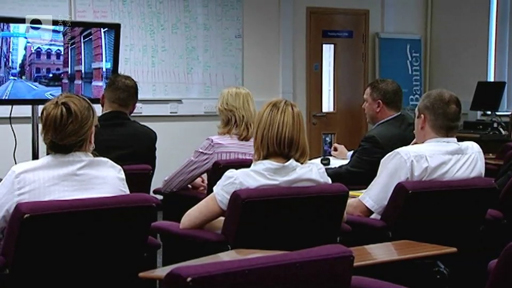3.2 How well did the police do?

Transcript
Did you solve the crime or, like DI Bullet, did your investigation lead to identifying an innocent suspect?
Although we have written DI Bullet as somewhat of a caricature, his investigative approach of trying to find evidence that supports his initial conclusions and of using biased investigative techniques unfortunately has led to wrongful convictions in real life – as you saw in Week 1 when looking at the Innocence Project. DS Sund’s investigation was a lot more accurate and did lead to identifying the correct suspects – and has hopefully demonstrated to you that developing investigative techniques that avoid leading questions and bias identification parades can have a very positive effect indeed.
Once the staged crime had finished, The Greater Manchester Police (who kindly volunteered to take part) were called in to investigate it. The only evidence they had access to was that which they could gather from the eyewitnesses. Unlike you, DI Bullet and DS Sund, they did have access to more than just two witnesses, do you think this would have made their jobs easier or harder?
